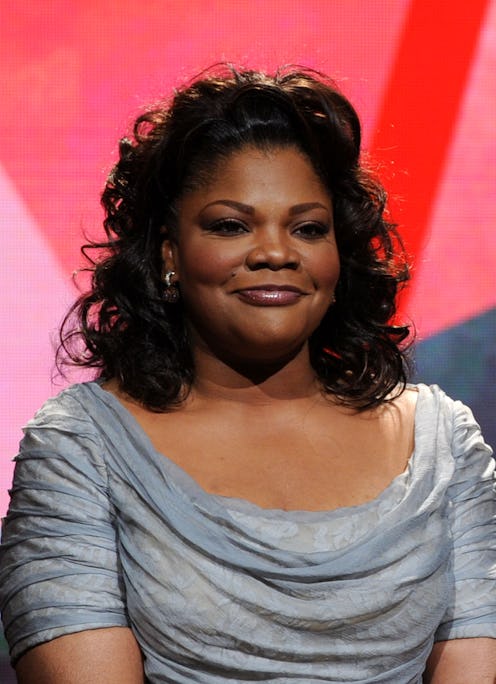
At a time when the discrepancy between male and female actors' pay in movies has become a popular topic of discussion, Mo'Nique is taking that conversation to a new level. This past weekend, Mo'Nique asked people to boycott Netflix in a video she posted on Instagram. That's because, as the Oscar-winning actress and comedian's told her fans on Instagram, Netflix allegedly offered her a sum of $500,000 for a comedy special. This might sound like a lot, but, when you consider that Amy Schumer received $13 million for Netflix Special, the amount allegedly offered to Mo'Nique is disproportionate. (Bustle reached out to Netflix for comment on Mo'Nique's claims, but they "[do] not comment on contract negotiations.")
In her video, the comedian attributed Netflix's substandard offer to "gender bias and color bias." She told fans that she spoke to Netflix representatives about Schumer's highly-publicized paycheck, which Netflix reportedly justified based on the release of movies like Trainwreck and Snatched, as well as the fact that Schumer's sold out Madison Square Garden twice. As for Mo'Nique's own compensation, according to the comedian's Instagram video, they told her, "We believe that's what Mo'Nique will bring." She then reportedly asked them why her impressive resume doesn't allow her more, but, according to Mo'Nique, she was reportedly told that they "don’t go off of résumés."
Mo'Nique claimed that Netflix's explanation for Schumer's hefty paycheck used her résumé as rationale, leaving Mo'Nique — and her fans who watched her video — confused about the reasoning for offering the comedian an alleged pittance compared to Schumer.
On top of that, Wanda Sykes tweeted to Mo'Nique, claiming that she was offered an amount from Netflix that offended her.
In response, Mo'Nique posted another video on Instagram alleging that Netflix offered Sykes $250,000. In the second video, she again compared her offer to Amy Schumer's alleged $13 million paycheck for her Netflix special, which Schumer negotiated after initially being offered $11 million, according to Vulture. Mo'Nique then argued that her and Sykes' combined "50 plus years in the comedy game" should not lead to a total offering of $750,000. Though she clarified that she has no issue with Schumer receiving a multi-million dollar deal, she asked how Netflix can allegedly offer "two black female comedians that are still at the top of their game after 50 plus years in this business" a fraction of what Schumer received.
Mo'Nique won an Oscar for Best Supporting Actress in 2010 for her role in Precious, and, as she suggests in her Instagram, her career spans over 20 years, including a starring role in The Parkers and appearances on popular standup specials like Queens of Comedy. Sykes, too, has an impressive career as a comedian, including an hour and-a-half long HBO standup special, I'ma Be Me.
Considering the longevity of these comics' careers, their offers for comedy specials should compare to other longstanding comics like Chris Rock and Dave Chappelle, who, according to CNN, were offered $20 million per Netflix special. In her first Instagram, Mo'Nique mentioned Rock and Chappelle's reportedly higher offers from Netflix, too, suggesting that she feels she deserved a sum closer to what they received. And fans had a lot of thoughts of their own:
Of course, this isn't the first time the controversial actor has spoken out about struggling to receive her "due," from Hollywood, as she told The Hollywood Reporter that she had been "blackballed" after winning her Oscar. But it's important for women of color like Mo'Nique to be heard when they speak out about these issues, because what happens in Hollywood serves as a microcosm of the economic biases that all people of color and women face. According to Pew Research Center analysis of Bureau of Labor Statistics data from 2015, on average, black women earn roughly 65 cents for every dollar a white man earns. The same study reveals that white white non-Hispanic women receive 81 cents on the dollar compared to white men.
Fans have already taken to Twitter to show their support for Mo'Nique, or at least to support black female comedians being paid the same as other comedians. And, considering that other movements related to pay inequality — like the recent reports that Mark Wahlberg received a substantially higher salary than Michelle Williams on their All The Money in the World re-shoot — have led male actors to respond meaningfully, perhaps Mo'Nique's rally could lead to real change in Hollywood. The first step to change is that alleged pay inequality, based on race and gender, is examined and discussed, rather just accepted as how things are.